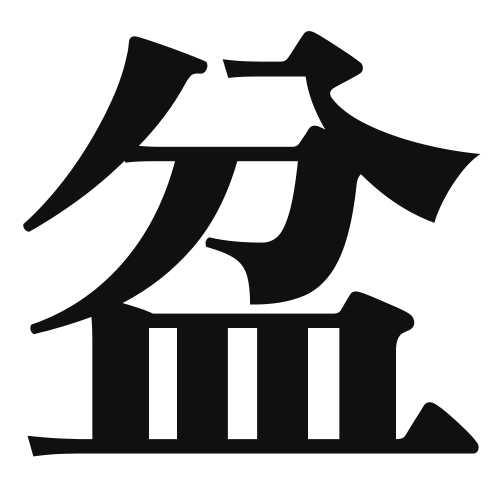1. Overview of Meaning
The kanji “盆” (bon) primarily refers to a tray or a basin. It is often associated with the Obon festival, a traditional Japanese event honoring deceased ancestors.
2. Formation and Radicals
Formation of the Kanji: The kanji “盆” is a compound character (会意文字) that combines elements to convey its meaning. It consists of the radical “皿” (sara), which means “dish” or “plate,” and the phonetic component “本” (hon), which contributes to its pronunciation.
Radical: The radical of “盆” is “皿,” indicating its connection to dishes or containers.
3. Examples of Usage
Common Words and Phrases:
- お盆 (obon) – the Obon festival
- 盆栽 (bonsai) – a potted plant or miniature tree
Example Sentences in Daily Conversation:
- 「お盆には家族が集まります。」(During Obon, the family gathers together.)
- 「この皿はお盆の上に置いてください。」(Please place this dish on the tray.)
4. Synonyms and Antonyms
Similar Kanji:
- 皿 (sara) – meaning “dish” or “plate,” refers specifically to a flat dish used for serving food.
- 盆地 (bonchi) – meaning “basin,” refers to a geographical depression or low area.
Antonyms:
- 山 (yama) – meaning “mountain,” which represents a high elevation, contrasting with the flatness implied by “盆.”
5. Cultural and Historical Background
Connection to Japanese Culture: The kanji “盆” is closely tied to the Obon festival, a time when Japanese people honor their ancestors through various rituals, including the preparation of special foods and the lighting of lanterns.
Proverbs and Idioms: While there are no specific proverbs that directly use “盆,” the festival itself is a significant cultural event that embodies themes of remembrance and family unity.
